Creating and maintaining a strong relationship with tenants is one of the cornerstones of successful property management. A healthy relationship can lead to long-term, reliable tenants who respect the property and abide by the lease agreement. For landlords in Florida, understanding the state’s specific laws, clear communication practices, and effective conflict resolution strategies is key to building and sustaining positive tenant relationships in Florida.
Building trust and goodwill from the outset can also mitigate common challenges like late payments, property damage, and conflicts over lease terms. This comprehensive guide will help you navigate these aspects, offering practical advice on how to foster a respectful, professional relationship with tenants.
Key Benefits of a Positive Landlord-Tenant Relationship in FLorida
Strong landlord-tenant relationships yield numerous benefits, including:
- Tenant Retention: Satisfied tenants are more likely to renew leases, reducing vacancy rates and turnover costs.
- Timely Rent Payments: Tenants who feel respected and valued are more likely to pay rent on time.
- Property Maintenance: Tenants who trust their landlord are more likely to report maintenance issues promptly, which helps you keep your property in good condition.
- Conflict Resolution: Good communication and trust can lead to smoother resolutions in case of disputes or misunderstandings.
Starting on the Right Foot: Clear and Transparent Leasing
One of the first and most crucial steps in building a strong relationship with tenants is establishing clear expectations from the beginning. The leasing process is your first opportunity to build rapport and set the tone for future interactions.
Draft a Thorough Lease Agreement
A well-written lease agreement is the foundation of your relationship. It ensures that both parties have a mutual understanding of their rights and responsibilities. In Florida, landlords must comply with state-specific laws such as the Florida Residential Landlord and Tenant Act, which governs security deposits, rent increases, maintenance responsibilities, and more.
- Clarity: The lease should be written in clear, easy-to-understand language. Avoid overly complex or vague terms.
- Specifics: Be specific about the rent amount, payment due dates, maintenance procedures, and pet policies. Clear details will help prevent future disputes.
- Legal Compliance: Ensure that your lease adheres to Florida laws, such as the proper handling of security deposits and the required notice periods for terminating a lease.
Set Expectations Early
Once the lease is signed, take the time to walk through the expectations with your tenant. This helps build trust and shows that you’re open to addressing any concerns. A simple move-in checklist that outlines the tenant’s responsibilities for the property (e.g., trash removal, lawn care) can be incredibly helpful.
- Move-In Inspections: Document the condition of the property at move-in. This will serve as a reference in case of any disputes regarding damages when the tenant moves out.
- Clear Communication Channels: Let tenants know how they can reach you for emergency repairs, routine maintenance requests, or any general concerns. Whether it’s through email, phone, or a tenant portal, make sure communication is easy and efficient.
Open and Consistent Communication
A transparent communication style is crucial in maintaining a positive landlord-tenant relationship. Regular communication, even when there are no immediate issues, helps foster trust and makes it easier to resolve problems before they escalate.
Be Approachable and Available
It’s essential to remain accessible to your tenants, especially in case of emergencies or maintenance requests. While tenants may not always need to contact you, knowing that they can reach you easily when necessary makes them feel valued and supported.
- Prompt Responses: Aim to respond to tenant inquiries or maintenance requests within 24 hours. Even if you cannot resolve the issue immediately, acknowledging their concerns lets tenants know that you care about their needs.
- Regular Check-Ins: While some landlords may avoid frequent contact, periodic check-ins (via email or phone) to ask about the tenant’s experience or if they need assistance can build goodwill. This proactive approach can also help you address minor issues before they turn into major problems.
Be Clear About Boundaries
While open communication is vital, it’s also important to establish healthy boundaries. Tenants need to know when it is appropriate to contact you and when they can expect you to be available. Setting clear boundaries helps maintain a professional relationship, making sure that both parties respect each other’s time and space.
- Respect Privacy: Florida law mandates that landlords must provide at least 12 hours’ notice before entering the rental property for non-emergency reasons. Make sure you follow this regulation and respect the tenant’s privacy.
- Responding to Complaints: In case of tenant complaints, always respond calmly and professionally, avoiding emotional reactions. Address concerns with the goal of finding a solution, not assigning blame.
Handling Maintenance and Repairs Responsibly
Maintenance and repair issues are common sources of friction in landlord-tenant relationships. However, addressing these matters quickly and effectively can enhance the relationship significantly.
Set a Clear Maintenance Policy
Florida landlords are legally required to keep rental properties in habitable condition. This means you must ensure the property meets basic health and safety standards. Have a written policy for handling maintenance requests so tenants know how to report issues and what to expect in terms of response times.
- Timely Repairs: For non-emergency repairs, aim to fix issues within a reasonable time frame, generally within 7 to 10 days, depending on the nature of the issue. If you can’t complete the repair immediately, inform the tenant about the status and the expected time frame for resolution.
- Emergency Maintenance: Define what constitutes an emergency and how tenants should contact you in such situations. Emergency repairs, such as plumbing leaks or electrical issues, should be addressed as soon as possible.
Regular Property Inspections
While it’s important to respect tenant privacy, periodic property inspections help ensure that the tenant is taking care of the property and that maintenance issues are identified early.
- Inspection Frequency: Florida law does not require mandatory inspections, but it’s a good idea to schedule routine inspections at least once every 6 months. Always give proper notice (12 hours in advance) to comply with tenant privacy laws.
- Maintenance During Inspections: Use property inspections as an opportunity to address minor repairs or maintenance needs that tenants may not have reported.

Get a Free Rental Analysis
Want to know how much your home will rent for? We’ll send you a free rental report!
Resolving Conflicts Effectively
Even in the best landlord-tenant relationships, disagreements are inevitable. Whether it’s a dispute over rent, property damage, or a misunderstanding about lease terms, resolving conflicts efficiently is essential to maintaining a positive relationship and avoiding legal complications.
Stay Calm and Objective
The key to resolving any conflict is to remain calm and objective. Emotions can run high during disagreements, but as the landlord, you must lead with professionalism. Listen to the tenant’s concerns, validate their feelings, and then address the issue at hand.
- Active Listening: When a tenant voices a concern, practice active listening by giving them your full attention. Acknowledge their points before providing a solution or counterpoint. This shows that you value their perspective, which can de-escalate tense situations.
- Stick to the Facts: Always focus on the facts of the situation. For instance, if there’s a dispute over late rent payments, present clear evidence of payment history, such as bank statements or receipts.
Offer Fair and Reasonable Solutions
After hearing the tenant’s side, present solutions that are fair, reasonable, and in line with the lease agreement. If the issue pertains to a maintenance issue, for example, offer a timeline for resolution. If it’s about a payment dispute, work out a payment plan that ensures both parties are satisfied.
- Compromise When Possible: While sticking to the lease terms is important, there are times when being flexible can help resolve a conflict without escalating it. For example, if a tenant faces temporary financial hardship, offering a small rent reduction or a deferred payment plan might help.
- Document the Resolution: Once the conflict is resolved, make sure to document the solution in writing. Both parties should agree to the terms, and you should keep a copy for your records.
Utilize Mediation Services
If a conflict cannot be resolved through direct communication, mediation may be the next best option. Florida has several community mediation services that can help facilitate discussions and reach a mutually agreeable solution.
- Benefits of Mediation: Mediation is a cost-effective, non-confrontational way to resolve disputes. It helps avoid the expense and time involved in legal action, and it also keeps the landlord-tenant relationship intact.
- Know When to Seek Legal Help: If mediation fails or the dispute escalates to the point where legal action is necessary, consult with a real estate attorney to understand your options and ensure you are following Florida’s laws.
Adhering to Florida’s Legal Framework
In Florida, both landlords and tenants have specific legal rights and responsibilities that govern their relationship. Understanding and adhering to these laws is critical to maintaining a healthy, legal, and effective relationship. Violating tenant rights or failing to meet landlord responsibilities can lead to fines, lawsuits, or even eviction.
Comply with Florida’s Residential Landlord and Tenant Act
Florida’s Residential Landlord and Tenant Act outlines the rights and responsibilities of both parties in a rental agreement. As a landlord, you must familiarize yourself with this law to avoid legal issues.
- Security Deposits: In Florida, landlords must return security deposits within 15 days of the tenant moving out if there are no damages to the property. If there are deductions for damages, the landlord must send an itemized list of repairs within 30 days.
- Rent Increases: Landlords must provide at least 15 days’ notice before raising the rent for month-to-month tenants. For fixed-term leases, the rent can only be increased after the lease expires unless otherwise specified in the lease agreement.
- Eviction Process: In Florida, the eviction process is highly regulated. Landlords must provide written notice to the tenant before initiating formal eviction proceedings. There are different procedures for non-payment of rent, lease violations, or other causes for eviction. Ensure you follow the proper legal steps to avoid any claims of illegal eviction.
Fair Housing Laws
As a landlord, it is your responsibility to ensure that you are compliant with the Fair Housing Act. Discrimination based on race, color, national origin, religion, sex, familial status, or disability is illegal in Florida, as in the rest of the United States.
- Equal Treatment for All Tenants: Avoid discriminatory practices when screening potential tenants. Treat all applicants equally by evaluating them based on the same criteria (e.g., credit score, income, rental history) rather than on their personal characteristics.
- Disability Accommodations: Florida law also requires landlords to provide reasonable accommodations to tenants with disabilities. This might include allowing service animals in properties with no-pet policies or making adjustments to the physical property to accommodate a tenant’s disability.
Effective Rent Collection Practices
One of the most significant challenges for landlords is ensuring timely rent collection. Late rent payments can cause cash flow problems and strain landlord-tenant relationships. To minimize late payments and maintain a positive relationship with tenants, it’s essential to set clear rent collection policies and stick to them.
Establish Clear Rent Payment Terms
The lease agreement should clearly define the rent due date, late fees, and the consequences of non-payment. This helps set expectations upfront, preventing misunderstandings later.
- Rent Due Date: Specify the exact due date for rent payments, whether it’s the first of the month or another date.
- Late Fees: Florida law allows landlords to charge late fees if specified in the lease agreement. Ensure the late fees are reasonable and clearly outlined in the lease to avoid disputes.
- Grace Periods: Some landlords may offer a grace period, such as a 5- to 7-day window, before late fees are applied. If you offer a grace period, make sure it’s stated in the lease.
Offer Multiple Payment Options
Making it easy for tenants to pay rent can encourage timely payments. Consider offering several payment methods, such as checks, online payments, or automatic bank transfers.
- Online Payment Systems: Implementing an online payment system not only provides convenience for tenants but also streamlines your rent collection process. Many property management software solutions allow tenants to pay rent online and automatically send reminders.
- Receipts and Documentation: Always provide receipts for rent payments, even if the payment is made electronically. This helps keep both parties accountable and ensures there is a record of the transaction.
Address Late Payments Promptly
If a tenant is late on a rent payment, address the issue promptly. A late payment doesn’t always mean the tenant is trying to avoid payment; they may be going through a temporary financial hardship.
- Communicate: Reach out to the tenant as soon as they miss a payment. Sometimes, a friendly reminder is all that’s needed. Keep the conversation professional and respectful, focusing on the solution.
- Payment Plans: If the tenant is struggling, consider working out a payment plan. This could include allowing them to pay a portion of the rent until they catch up. However, make sure to formalize any arrangement in writing.
Encouraging Mutual Respect and Understanding
Mutual respect is the cornerstone of any successful landlord-tenant relationship. By maintaining an attitude of professionalism and empathy, you can foster a more positive, collaborative relationship with your tenants.
Respect Tenant Privacy
Tenants have the right to the quiet enjoyment of their homes, which includes a reasonable expectation of privacy. As a landlord, it’s important to respect these rights and avoid unnecessary intrusions.
- Notice Before Entering: As per Florida law, you must give at least 12 hours’ notice before entering a tenant’s unit. Always provide advance notice for routine inspections, repairs, or showings.
- Respect Boundaries: Avoid excessive communication or dropping by without an appointment. Regular communication is important, but respecting personal space will foster a stronger relationship.
Treat Tenants as Partners
Although you are the property owner, it’s helpful to treat tenants as partners in the care and upkeep of the property. Involve them in maintaining the space, encourage them to report issues promptly, and show appreciation for good behavior such as paying rent on time.
- Incentivize Good Behavior: Consider offering incentives for tenants who maintain the property well or pay rent consistently on time. This could include offering small discounts on rent after a certain period or providing them with a token of appreciation, such as a gift card.
Continuing Education for Landlords
Landlord-tenant laws and best practices evolve over time. It’s essential for landlords in Florida to stay informed about any changes in regulations, market trends, and property management strategies.
- Attend Workshops and Seminars: Many real estate organizations offer seminars and workshops for landlords. These can provide valuable insights into the latest legal updates and effective management techniques.
- Join Landlord Associations: Consider joining local landlord associations, such as the Florida Apartment Association (FAA), to access resources, support, and networking opportunities.
By adhering to the best practices outlined in this section, you will enhance your ability to handle common challenges that arise throughout the landlord-tenant relationship. As a result, you can avoid unnecessary conflicts and foster a productive and positive environment for both you and your tenants.

Creating a Positive Living Environment
A positive living environment is crucial to fostering long-term, harmonious landlord-tenant relationships. When tenants feel respected and valued, they are more likely to take care of the property and pay rent on time. As a landlord, you can take several steps to cultivate an environment where tenants feel comfortable and satisfied in their rental space.
Make Property Maintenance a Priority
One of the main factors that affect tenant satisfaction is the condition of the property. Ensuring that the property is well-maintained and that necessary repairs are made promptly can go a long way in maintaining a positive relationship with tenants.
- Routine Inspections: Conduct regular property inspections to identify and address maintenance issues before they become bigger problems. Create a schedule for routine inspections, such as every six months, and communicate this in advance to your tenants.
- Timely Repairs: If a tenant submits a maintenance request, it’s crucial to address the issue promptly. Delaying repairs can lead to frustration and dissatisfaction. Make sure you or your property management team responds quickly and efficiently to any repair needs, especially urgent ones like plumbing or heating issues.
Encourage Tenant Feedback
Feedback from your tenants is a valuable tool for improving your property management practices. It provides insights into potential issues that may not be immediately apparent, and it allows you to make improvements that benefit both parties.
- Regular Communication: Open channels of communication with your tenants and encourage them to share any concerns or suggestions. You can do this through email, phone calls, or even online tenant portals. For example, you might ask for feedback after addressing a maintenance issue or after a lease renewal.
- Create a Feedback System: Develop a formalized feedback system that allows tenants to provide input on aspects of the property, such as common areas or amenities. Consider sending out anonymous surveys, which can encourage honest responses. Addressing tenant feedback shows that you value their opinions and are committed to improving their living experience.
Foster a Community Environment
Building a sense of community within your rental property can create a more pleasant atmosphere for tenants and help foster stronger relationships. A positive community culture makes tenants feel more invested in the property, which can lead to longer lease renewals and fewer vacancies.
- Organize Tenant Events: Host occasional tenant events, such as holiday parties, barbecue cookouts, or community clean-up days. These events provide an opportunity for tenants to meet one another, interact, and build rapport, fostering a sense of belonging.
- Encourage Respect for Shared Spaces: If your property includes shared spaces such as parking areas, laundry rooms, or outdoor spaces, it’s important to establish and enforce guidelines for their use. Ensure that tenants understand their responsibilities for maintaining cleanliness and respectful behavior in these areas.
Managing Lease Renewals and Rent Increases
Lease renewals and rent increases are natural parts of the landlord-tenant relationship, but they can sometimes create tension if not handled properly. By approaching these matters thoughtfully, you can ensure that both parties feel satisfied with the process.
Keep Open Lines of Communication
When approaching a lease renewal, start the conversation early. Waiting until the last minute to discuss renewal options or rent increases can put pressure on the tenant and damage the relationship.
- Discuss Renewals Early: Begin discussing lease renewals with tenants at least 60 days before the lease expiration. This gives tenants ample time to make decisions and gives you time to consider any necessary adjustments to rent or terms.
- Transparency in Rent Increases: If you plan to increase rent, be transparent with the tenant about why the increase is necessary. Whether it’s due to rising property costs, market conditions, or improvements made to the property, explaining the reasons behind the increase can help tenants understand and accept the change.
Offer Incentives for Lease Renewals
Retaining tenants is often more cost-effective than finding new ones, so consider offering incentives for tenants who renew their leases. Offering incentives can also help foster goodwill and demonstrate that you value your tenants’ business.
- Renewal Discounts: Consider offering a small discount on rent for tenants who sign a lease renewal. Even a modest reduction in rent can encourage tenants to stay longer.
- Upgrades or Improvements: Another way to incentivize lease renewals is to offer upgrades or improvements to the property. For example, you could offer to repaint the interior, upgrade appliances, or make other improvements that enhance the tenant’s living experience.
Handle Rent Increases with Care
Rent increases are a natural part of property ownership, but they can cause tenants to feel upset if not handled thoughtfully. Ensure that any rent increases are reasonable and that you follow Florida’s legal requirements for notifying tenants.
- Give Proper Notice: In Florida, landlords must give at least 60 days’ written notice before increasing rent for tenants on a year-long lease. For month-to-month tenants, the notice period is 15 days. Make sure to adhere to these timelines to avoid legal complications.
- Be Fair and Reasonable: While you may have the right to increase rent, ensure that the increase is reasonable and justifiable. For example, if you increase rent significantly, be prepared to explain why the increase is necessary. Consider the local rental market rates and your tenant’s history of timely payments before setting the new rent amount.
Using Technology to Improve Landlord-Tenant Relationships
Technology has revolutionized many aspects of property management, providing landlords with tools to streamline operations and improve communication with tenants. By utilizing property management software and other tech tools, you can create a more efficient and transparent relationship with your tenants.
Property Management Software
Property management software can help you keep track of important information, communicate with tenants, and manage rent payments. These platforms allow landlords to automate many tasks, reducing the amount of time spent on administrative work.
- Online Rent Payments: Many property management systems offer online rent payment options, allowing tenants to pay their rent electronically. This convenience can encourage timely payments and eliminate the hassle of writing and mailing checks.
- Maintenance Request Tracking: Property management software also allows tenants to submit maintenance requests online. These platforms often include tracking systems that help landlords stay on top of repair issues and ensure that work is completed on time.
Communication Tools
Clear and consistent communication is essential for building trust with tenants. Technology can help you streamline communication and provide tenants with the information they need.
- Tenant Portals: Many property management platforms offer tenant portals, where tenants can view their lease, track payments, submit maintenance requests, and communicate directly with the landlord. This reduces misunderstandings and gives tenants easy access to important information.
- Automated Reminders: Use automated systems to send reminders about upcoming rent payments, lease renewals, or property inspections. Sending reminders via text, email, or the tenant portal ensures that important dates are not overlooked.
Digital Leases and Documents
In Florida, digital leases and documents are legally binding if they meet certain requirements. Using electronic signatures for lease agreements and other documents can make the leasing process more efficient and reduce paper waste.
- Streamline Leasing Process: Using electronic lease signing and document management tools can speed up the lease renewal process and reduce the time spent handling paperwork. Tenants can sign documents remotely, making the process more convenient for both parties.
Building Long-Term Relationships and Success
Building a strong and lasting landlord-tenant relationship requires consistent effort, clear communication, and a willingness to address issues in a timely manner. By following the best practices outlined in this guide, you can foster a positive rental experience for both yourself and your tenants, which can lead to long-term success.
Monitor and Adjust Practices
As your rental business grows, continuously evaluate and refine your practices. What worked for you in one property may not be as effective in another, so be flexible and adjust as needed.
- Monitor Satisfaction: Regularly check in with your tenants to gauge their satisfaction with the property and your management practices. Keeping an open line of communication ensures that any issues are addressed early, preventing bigger problems down the road.
- Adjust Based on Feedback: If tenants express dissatisfaction with a particular aspect of the property, consider making adjustments. Whether it’s improving communication, addressing maintenance issues, or offering more amenities, responding to feedback shows tenants that you are dedicated to creating a positive living experience.
Keep Abreast of Legal Changes
Landlord-tenant laws are constantly evolving, and it’s important to stay up-to-date with any changes that may affect your rental properties. Regularly review Florida’s landlord-tenant laws and any new regulations to ensure compliance and avoid potential legal issues.
- Subscribe to Legal Updates: Stay informed by subscribing to legal newsletters or attending landlord-tenant law seminars. These resources can help you understand new laws and best practices that may impact your rental business.
By applying these strategies and best practices, you can build strong landlord-tenant relationships that contribute to the long-term success of your rental properties in Florida.
Suggested Helpful links:
The Complete Guide to Tenant Rights and Landlord Responsibilities in Jupiter, FL
Comprehensive Guide to Efficiently Self-Managing Your Rental Properties
The Benefits of Using a Local Property Management Company in Jupiter, FL
How to Build Strong Tenant Relationships in Jupiter Long-Term Rentals
10 Amazing Tips to Build Strong Tenant Relationships in Jupiter Long-Term Rentals



